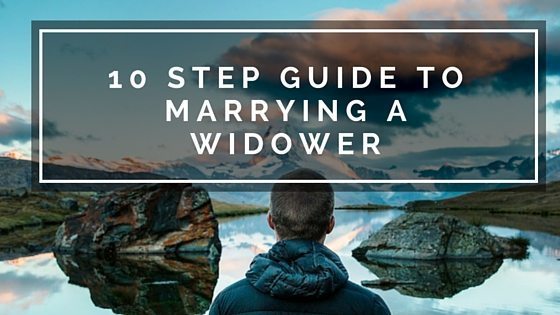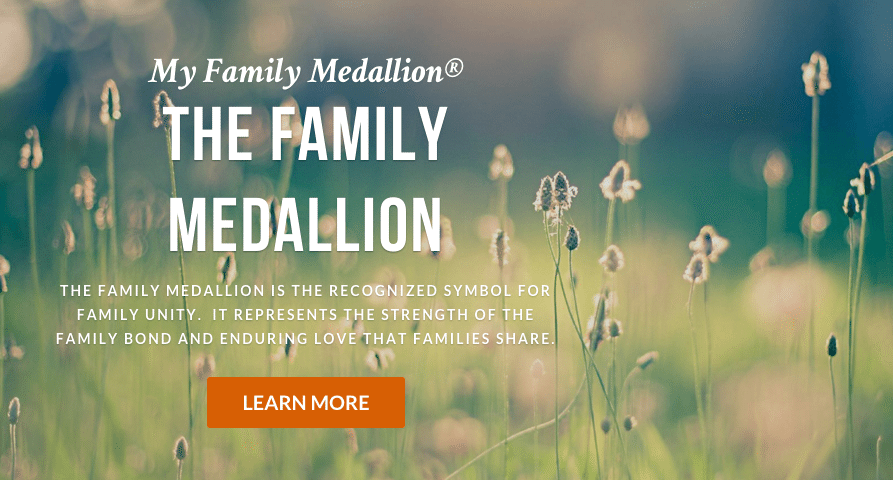10 Step Guide To Marrying A Widower
Remarriage itself is a daunting undertaking, but when one marries someone who has lost a first spouse, it can also be fraught with issues, emotions, and real-life problems that had never before been written about in the history of periodical literature…until now.
Here are 10 steps to marrying a widower and making the most of your relationship – with all the hardships and worries, and how to overcome them.
1. Embrace the past – Don’t Hide it or Run From it
Ignoring your husband’s grief will not stop it. Nothing will. He will most likely forever grieve his loss. Living in denial of grief’s existence will only prolong your spouse’s grief recovery. Better to allow your husband the opportunities he requires to talk about where he’s at in his grief journey.
Better still to have a relationship where you, too, can talk openly and honestly about your issues regarding his grief and his past, and how they both make you feel about your marriage.
Check out the book, Dating a Widower: Starting A Relationship With A Man Who’s Starting over by Abel Keogh, for more insight.
2. Accept That Your Marriage Will be One of Three Hearts.
It’s no easy task to share your husband’s heart with another woman, but in a marriage to a widower, that is precisely what you must learn to live with.
But take heart – it IS possible for grief and love to co-exist! Even more encouraging is the knowledge that your husband’s love for his late wife will never diminish what he feels with you! The beautiful part of a mature relationship is the understanding that there is room in our lives to embrace our experiences, our past and our present, as it helps define who we become in our future.
Your husband chose you because he loves you- don’t lose sight of that!
3. Don’t Let Pettiness Over Material Possessions Get You Off on the Wrong Foot.
If you battle with insecurities about whether or not your husband does or will ever love you as much as he loved his late wife, then resenting her pictures or personal possessions from their marriage in your house may seem like an important point of issue to you. Many WOWs deal with this problem when blending two households into one, and it can cause the most pain and frustration in your new marriage – yet it doesn’t have to.
The keys to healing this problem are communication and compromise. Between the two of you, decide which possessions you are both comfortable with keeping, and which of them you are willing to donate to Goodwill. Remember that you each have special mementos of the past which hold great sentimental value. Be sensitive about the other person’s feelings when deciding on which of these you can live with if they are to be displayed in your home.
4. Be Ever Vigilant About Remaining Sympathetic & Empathetic When Dealing With All the Bereaved Family Members.
While the late wife’s family may or may not accept you into the new extended family fold, remember that they have experienced a great loss and are dealing with the backlash of grief. They may fear that their daughter’s/sister’s/niece’s/granddaughter’s memory will fade into obscurity just because your husband decided to remarry, and may subconsciously blame you for this. If you remain constantly focused on their bereavement, it will become much easier for you to deal with any negativity on their part.
As with anyone who has suffered the loss of a loved one to death, allow them their memories and be patient as they learn to grow to love who you are and respect your place in your husband’s life
5. Don’t Dwell on the Past or Let it Feed Your Insecurities.
Was the late wife prettier/sexier/funnier than you? Was she a better cook/lover/friend/parent/etc.?
Comparisons are normal, yet when we fall short of our own comparisons, they can feed our insecurities and inhibit the growth of a relationship with a spouse. Your husband did not marry you because you were an exact replica or clone of his late wife. He, more than anyone else, is keenly aware of the unique and special qualities that made him fall in love with you, no matter how different or alike you are to his first wife.
Accept that you and the late wife are two different people, both with wonderful characteristics that are worthy of your husband’s love. Remember that the negative differences you create in your own failed comparison to the late wife may be just the reasons why your husband found you to be so appealing!
6. Be Selfless and Gracious Enough to Accommodate Grief-Related Episodes as They Occur.
You cannot love a widower enough to make him forget his late wife. Yes, time is a healer, and along every grief journey, sadness turns to joy at some point. However, do not be fooled into thinking that your husband’s late wife’s death anniversary or their wedding anniversary, her birthday, or holidays will be grief-free.
He may be unwilling to share his grief feelings with you on these special occasions simply because he may be afraid that speaking of them will hurt your feelings. These are the times to boldly take the bull by the horns and graciously offer your permission as well as your understanding. Lovingly remind him that you are aware of the significance of these dates when they occur, and that you are available for listening should he wish to share his feelings. Also, offer to go with him to the cemetery if that is what he desires. As painful as it may seem, joining your husband in this way can be soul cleansing to both of you and to your marriage because of the opportunity for therapeutically honest communication that arises.
You may even want to get advice from another widower here as he talks about what it’s like to date and be with someone who has lost a spouse.
7. Firmly Set Boundaries, but With Gentleness and Cooperation.
A marriage to a widower isn’t all about his grief and tiptoeing gently around it. YOUR feelings matter, too, and they deserve validation, no matter how petty, insensitive (to grief), and unrealistic the outside world may find them.
Many wives of widowers are hurt when their husbands refer to their late wives as “my first wife” or simply “my wife, Hazel (or whatever her name was!)”. If you can relate to this issue, you must firmly but gently communicate your discomfort to your husband, and allow him the opportunity to be as sensitive to your “second wife needs” as you are to his “grief needs”.
8. Read, Research, and Learn All You Can About the Stages of Grief and What to Expect from Each.
By the time you marry, most of your husband’s grief journey will be complete. However, as with all bereaved persons, there will always remain a spark of grief that must be dealt with on a regular basis. If you are to be truly “one” with your husband, it will be your responsibility to learn all you can about grief and its effects in order to understand how they will eventually fit into your individual marital puzzles.
Dr. Elizabeth Kubler-Ross has penned a wonderful book based on her study of the bereaved called “On Death and Dying”. In it, she outlines the stages of grief, and what a bereaved person can expect from each. While the book falls short of fully describing the remarriage of widows and widowers, it is a wonderful reference to absorb should you wish to become better informed about the journey of bereavement and of your husband’s heart.
9. Don’t be Afraid to Seek Outside Help Should You Find Your WOW Feelings to be Overwhelmingly Frustrating.
My husband and a very special communication about his past, his late wife, and his feelings about both, which provided comfort and encouragement to both of us in our marriage. However, at times I still tended to tilt at the windmills of my mind as well as the intimidating ghostly presence of his late wife.
Wives of widowers are few and far between, and sometimes, we aren’t even aware of whom our WOW sisters are! They could be our neighbors, our chatty friends at Yoga class, or even the mothers of our children’s friends. Our WOW status and the issues that arise because of it are not the typical conversation fodder for most casual acquaintances! Therefore, we do not have a social circle of supportive friends to whom we can share, vent, and discuss our mutual WOW angst and joys.
So many WOWs feel that they are either alone in their feelings, or just a tad crazy to have them at all! Therefore, it becomes acutely necessary for a WOW who constantly deals with negative pressures of her role to seek the support of a counselor, clergyman, or fellow WOW. Sometimes, just getting validation for our distinctive WOW emotions is the first step towards healing them.
10. Live for the Present and Welcome the Future by Making Each Day Count.
Every day of life you live and every breath you take are gifts from God. Show your appreciation by making each of them count! Make new memories with your husband that are special only to the two of you and that are autonomous from his marriage to his late wife.
Plan vacations to exotic places that neither of you has ever visited. Combine your holiday traditions, thereby making new ones that will become unique to your marriage. Redecorate your house or even one room at a time together, or buy a new home…together…and make it your own.
Life is a teacher, so be a good student. Remember – you cannot change the past, but you can accommodate its memory and grow from it…and so can your marriage to a widower.
Julie Donner Andersen – author of “PAST: Perfect! PRESENT: Tense! Insights from One Woman’s Journey as the Wife of a Widower”.
Other great resources include:
- Saving Your Second Marriage Before it Starts: 9 Questions to Ask Before – and After – You Remarry by Les Parriot
- Your Second Wedding: How To Handle Issues, Make Plans, And Ensure It’s A Great Success by Kristie Lorette
- Second Wives: The Pitfalls and Rewards of Marrying Widowers and Divorced Men by Susan Barash











